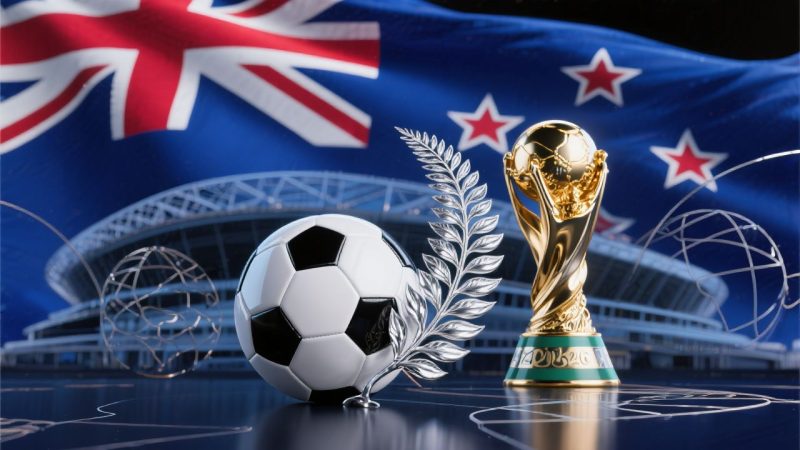
New Zealand booked their spot at the 2026 FIFA World Cup after a thumping 3-0 win over New Caledonia in the final of the Oceania qualifiers.
Thanks to FIFA’s decision to expand the tournament and open the door to 48 teams, Oceania has been given a direct qualification spot at the World Cup for the first time ever.
This new path to the world’s biggest football stage could not have come at a better time for New Zealand. Qualifying for the World Cup is a major achievement in itself and one which potentially changes everything for football in the country.
New Zealand competing at the showpiece event could pave the way for more investment in the domestic game, inspire young players, attract sponsors and give broadcasters a reason to believe in the sport’s potential.
Greater Exposure for Their Current Players
Football has not traditionally been the most talked-about sport in New Zealand. But all of that could change now that the All Whites have secured a spot at the 2026 World Cup.
Many of the national team players ply their trade in the local leagues or the lower tiers of European football. However, their performances in getting the national team to the World Cup could be enough to get them into the international spotlight.
New Zealand star Liberato Cacace recently moved to the English Championship, where he will be looking to help Wrexham secure promotion to the Premier League.
There are many other players who could go from being under the radar to getting a big move to one of the top leagues in European football.
The World Cup is the biggest shopping window across the globe, and it will provide Kiwi players with a glorious opportunity to showcase their talents.
Impact on the Sports Betting Industry
The ripple effect of qualifying for the World Cup will reach into industries that support and benefit from football’s global popularity. That includes the sports betting industry.
Major international sporting events traditionally generate a significant uptick in betting activity across New Zealand. Top sportsbooks such as PlayUp already have a wide range of World Cup markets available and are guaranteed to be snowed under with bets during the tournament.
With the All Whites set to feature at the World Cup, casual and seasoned Kiwi punters will place plenty of wagers, even if they do now usually bet on football.
This increase in betting will generate more tax revenue for the New Zealand government, part of which is reinvested into developing the sport at the grassroots level.
Sportswear Suppliers & Broadcasters Will Capitalise
New Zealand’s qualification for the World Cup will also have a significant impact on sportswear suppliers and the broadcast sector.
Qualifying for a major tournament is great news when it comes to merchandising. Shirt sales will skyrocket as fans look to flaunt the nation’s colours while cheering them on at the tournament.
That means more business for local retailers and suppliers, and there could also be a knock-on effect in terms of partnerships and sponsorships.
New Zealand is not the biggest commercial market, but brands will likely become interested once they see the team rubbing shoulders with global elites.
Major sportswear companies may also start to see New Zealand as a market primed for growth in Oceania, which could pave the way for better deals and gear.
The broadcast industry will also be in line to profit. Football fans in New Zealand often rely on overseas channels and streaming platforms to follow major tournaments.
With New Zealand now on the biggest stage, local broadcasters will be able to offer live match coverage and other exclusive content.
The Future Legacy of the World Cup on New Zealand
A World Cup campaign generally leaves an imprint far larger than the tournament itself.
When New Zealand went unbeaten in the group stage in 2010, that achievement sparked a wave of pride that continued for several years.
Interest in football surged to unprecedented levels. Youngsters were more interested in football, which led to more participation.
Now that New Zealand are set to feature at the World Cup for the first time in 16 years, you would expect a similar impact across the country.
It could have a long-term impact on grassroots development and increase the demand for qualified coaches, better training facilities and improved football education.
